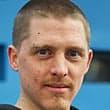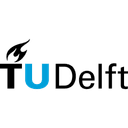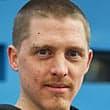Learn to model complex systems using differential equations in this hands-on 6-week course from DelftX.
Learn to model complex systems using differential equations in this hands-on 6-week course from DelftX.
Master the art of mathematical modelling using differential equations in this comprehensive course. Learn to analyze real-world problems, formulate them as mathematical models, calculate solutions, and validate results. Explore ordinary differential equations, systems of equations, and numerical methods like Euler's method. Gain practical experience through hands-on exercises and Python programming. This course is ideal for Bachelor students in Mathematics, Engineering, and Science, as well as professionals seeking to apply differential equations to solve real-world problems.
Instructors:
English
English
What you'll learn
Follow the mathematical modelling cycle to solve real-world problems
Analyze and utilize ordinary differential equations and systems of equations
Implement Euler's method for solving differential equations using Python
Apply differential equations to model population growth and virus spread
Develop skills in formulating complex real-life problems as mathematical models
Validate and interpret results of mathematical models
Skills you'll gain
This course includes:
PreRecorded video
Graded assignments, exams
Access on Mobile, Tablet, Desktop
Limited Access access
Shareable certificate
Closed caption
Get a Completion Certificate
Share your certificate with prospective employers and your professional network on LinkedIn.
Created by
Provided by

Top companies offer this course to their employees
Top companies provide this course to enhance their employees' skills, ensuring they excel in handling complex projects and drive organizational success.





There are 3 modules in this course
This course introduces students to the mathematical modelling cycle using differential equations. It covers formulating real-life problems, constructing appropriate mathematical models, calculating solutions, and validating results. Students learn to analyze and use ordinary differential equations and systems of equations. The course includes practical implementation of Euler's method using Python programming. Topics include population dynamics, epidemic modeling, and predator-prey systems. The verified track offers additional problem sets on real-life applications to consolidate learned skills. The course emphasizes hands-on practice through well-crafted exercises, allowing students to apply theoretical knowledge to practical scenarios.
Introduction to the cycle of mathematical modelling
Module 1
Improving models and introducing Euler's method
Module 2
Systems of differential equations
Module 3
Fee Structure
Instructors

1 Course
Expert in Mathematical Modeling and Steel Microstructure
Dennis den Ouden-van der Horst serves as a Lecturer in Mathematics at TU Delft, where he specializes in mathematical modeling and materials science. After completing his PhD research on the mathematical modeling of steel microstructure, he has focused on teaching mathematics and its applications in engineering. His expertise bridges pure mathematics with practical engineering applications, particularly in understanding material properties through mathematical models. As a lecturer at TU Delft, he contributes to the university's mathematics curriculum, helping students understand complex mathematical concepts and their real-world applications in engineering and materials science. His research background in steel microstructure modeling provides him with unique insights that enhance his teaching of applied mathematics

5 Courses
Expert in Complex Dynamics and Mathematics Education
Iris Smit serves as a Lecturer in Mathematics at TU Delft, bringing extensive experience in complex dynamics and mathematical education. After completing her studies in Los Angeles, she earned her PhD from the University of Amsterdam with research focusing on complex dynamics. Her academic journey included a postdoctoral position in Trondheim, Norway, before joining TU Delft. As a mathematics lecturer, she specializes in teaching calculus and linear algebra to engineering students across various disciplines. Her expertise extends to the development and programming of formative and summative exercises, enhancing the learning experience for engineering students. She has made significant contributions to mathematics education through her work in creating comprehensive course materials and innovative assessment methods
Testimonials
Testimonials and success stories are a testament to the quality of this program and its impact on your career and learning journey. Be the first to help others make an informed decision by sharing your review of the course.
Frequently asked questions
Below are some of the most commonly asked questions about this course. We aim to provide clear and concise answers to help you better understand the course content, structure, and any other relevant information. If you have any additional questions or if your question is not listed here, please don't hesitate to reach out to our support team for further assistance.



